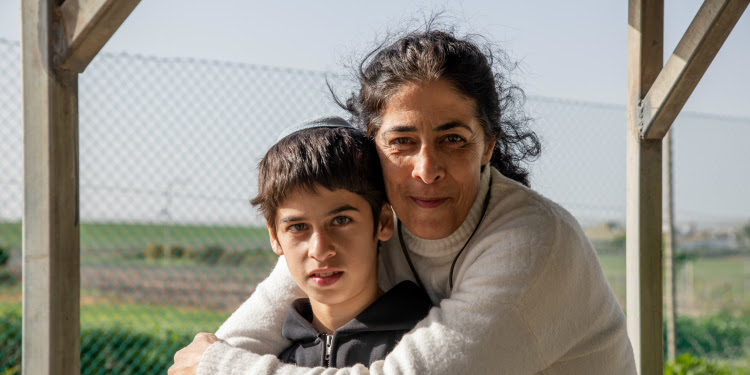Project Spotlight: Trauma Centers
The Fellowship | May 21, 2019

Families near Israel’s southern border with Gaza live with a heightened security alert all the time, as they are in the range of rockets fired by terrorists in Gaza. The regular sound of code red sirens signaling an incoming rocket and prompting everyone to run for shelter creates a high level of stress and anxiety. When that stress and anxiety turn into debilitating trauma, these Israelis can turn to Fellowship-supported trauma centers for help. Here, they seek counseling and learn to deal with the stress. Treatments help them better understand what happens to the human body under stress and how to reduce stress, relax, and cope.
In past years, we’ve supported the building of Eshkol Trauma Center and Sha’ar HaNegev Trauma Center. Because these two centers have reinforcements, the people inside are protected from rocket fire and this prevents the need to run for shelter when a code-red siren sounds. In this literal safe space, patients can focus solely on healing and learning how to cope with future attacks.
Israelis have done their best to seek out help when they know their trauma is too great to handle alone – and The Fellowship does our best to make sure the treatment they receive is most beneficial both physically and psychologically. Just ask Ronit.
‘There’s Hope Yet’
“Living on a kibbutz outside of Gaza has its pluses and its minuses. Most days it’s one of the most perfect places on earth,” says Ronit, who lives there with her 12-year-old son Guy. “But over the past 18 years, it’s become increasingly more difficult.”
She is referring to the rocket, incendiary kite, explosive balloon, and tunnel attacks that Hamas terrorists carry out on peaceful communities like Kibbutz Saad.
Children and families here have mere seconds to find safe shelter at the first warning of a rocket attack. These warnings strike fear into the hearts of many, especially children like Guy.
Families and children don’t know if their loved ones are outside and vulnerable, if they have found safety, or if this will be the last sound they ever hear.
“I worry about Guy because he takes it really hard,” Ronit says. “He goes straight into the safe room. His eyes sort of glaze up. He sits on his bed. He doesn’t move. His heart thumps.”
Thankfully, Guy has access to the Regional Council’s resilience center — built with help of The Fellowship and donors — where he receives therapy to help him cope.
Ronit says the support of Christian donors in the U.S. means a lot. “It’s amazing. They help us in so many different ways. It makes me very appreciative. You don’t really know me. I don’t know you. But you chose to help me in my time of need. So, there’s hope yet.”
